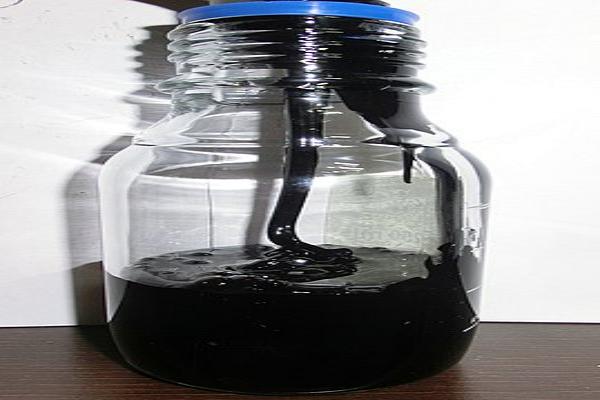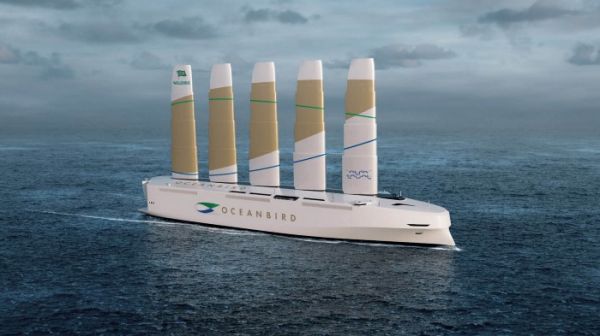Clean ocean shipping comes from the past
With a vengeance, I hope.
Our world relies on ocean shipping to function, but container ships are a mess: besides burning what is possibly the dirtiest fossil fuel of all:

<u><em><strong>CAPTION:</strong>
<a href="https://en.wikipedia.org/wiki/Heavy_fuel_oil" target="_blank">Bunker fuel. Source: Wikipedia</a>
</em></u>
“their propellers literally cut animals in half and their immense underwater racket disturbs the delicate marine ecosystems”.
One way to tackle this problem before it even leaves port would be to reduce ocean trade, at least its idiotically circular part, but that is another story.
The obvious way to solve the fuel pollution problem (but not noise pollution and animal strikes!) would be to convert all container ships to alternative propulsion methods. On ships, however, as you may read here, that problem is much harder to solve with “conventional” clean technologies. On container ships:
- adequate electric batteries or hydrogen tanks would take too much space, and weight too much
- carbon-neutral biofuels would just pass the bucket elsewhere, by taking vast amounts of land (and maybe even reducing how much Co2 that land absorbs), using refineries that consume lots of energy, and cost too much anyway
Back to the future. Or forward to the past?
Oceanbird is an interesting company that aims to fix this mess by jumping forward to the past, when none of these problems existed because freighters had… sails 2.0, powered by good old winds:

Ships like that, that should take to the seas in 2025, would really improve the situation, even if they would still need a small diesel engine. According to Oceanbird, their ships will be able to carry across the Atlantic Ocean a cargo equivalent to 7,000 cars in 12 days, using 90% less fuel than today.
Slowness? So what?
Besides reducing pollution, maybe the most interesting part of this story is its impact (or lack thereof) on the effectiveness of global supply chains. Current container ships can cross the Atlantic in 8 days instead of 12 as the Oceanbird models should do. But is that a problem? Not at all, I say.
On the retail side, online shopping from overseas warehouses needs to become slower anyway. At the business-to-business level, supply chains need to be predictable, even more than they need speed. In most factories, or warehouses, it really doesn’t matter how long your orders take to arrive, as long as you always get the right number of items per week, every week.
Add to this the greater international political stability that comes from reducing fossil fuels dependence, and projects like Oceanbird really seem an idea whose time has come. Or returned.
Who writes this, why, and how to help
I am Marco Fioretti, tech writer and aspiring polymath doing human-digital research and popularization.
I do it because YOUR civil rights and the quality of YOUR life depend every year more on how software is used AROUND you.
To this end, I have already shared more than a million words on this blog, without any paywall or user tracking, and am sharing the next million through a newsletter, also without any paywall.
The more direct support I get, the more I can continue to inform for free parents, teachers, decision makers, and everybody else who should know more stuff like this. You can support me with paid subscriptions to my newsletter, donations via PayPal (mfioretti@nexaima.net) or LiberaPay, or in any of the other ways listed here.THANKS for your support!